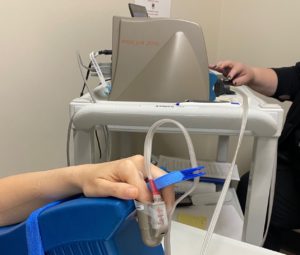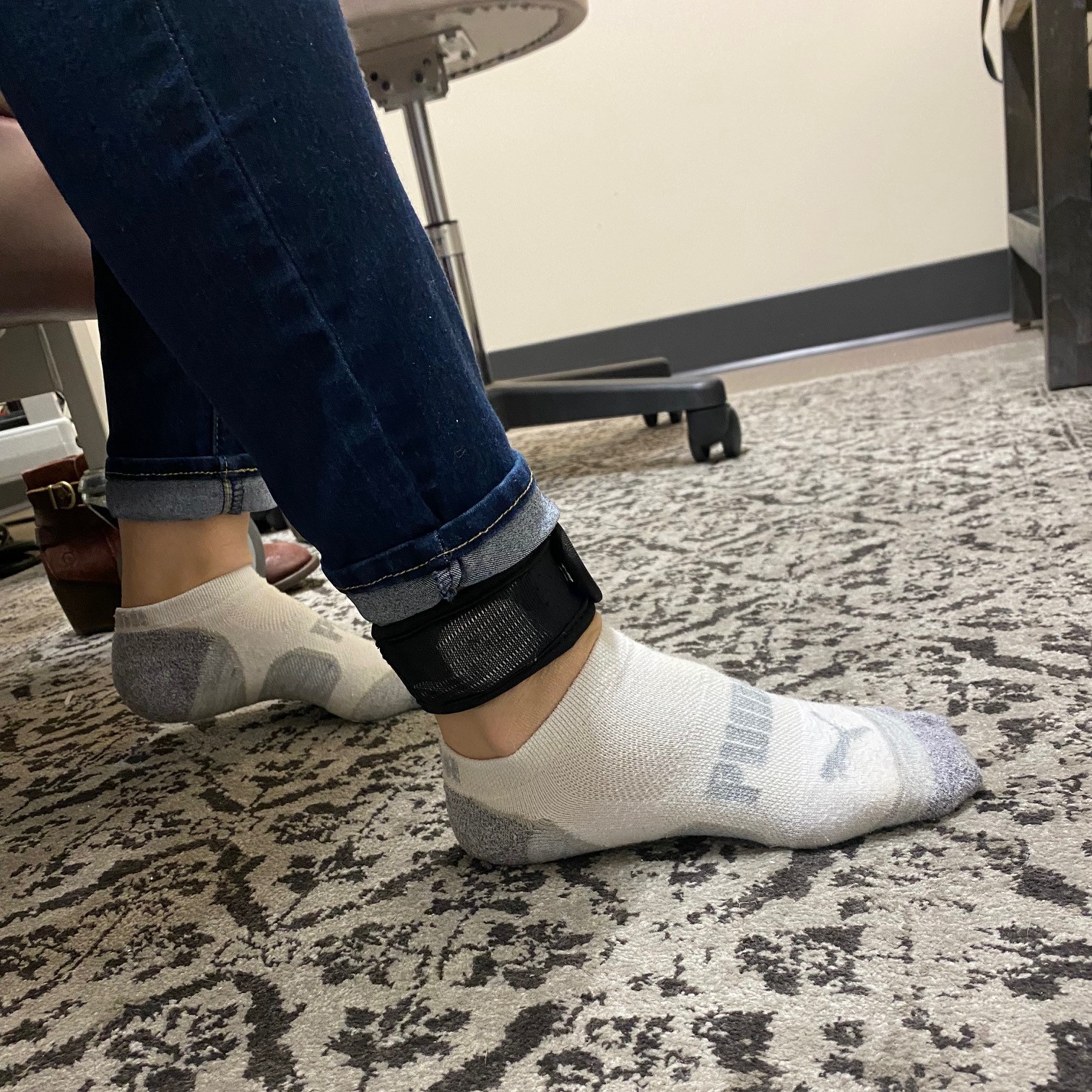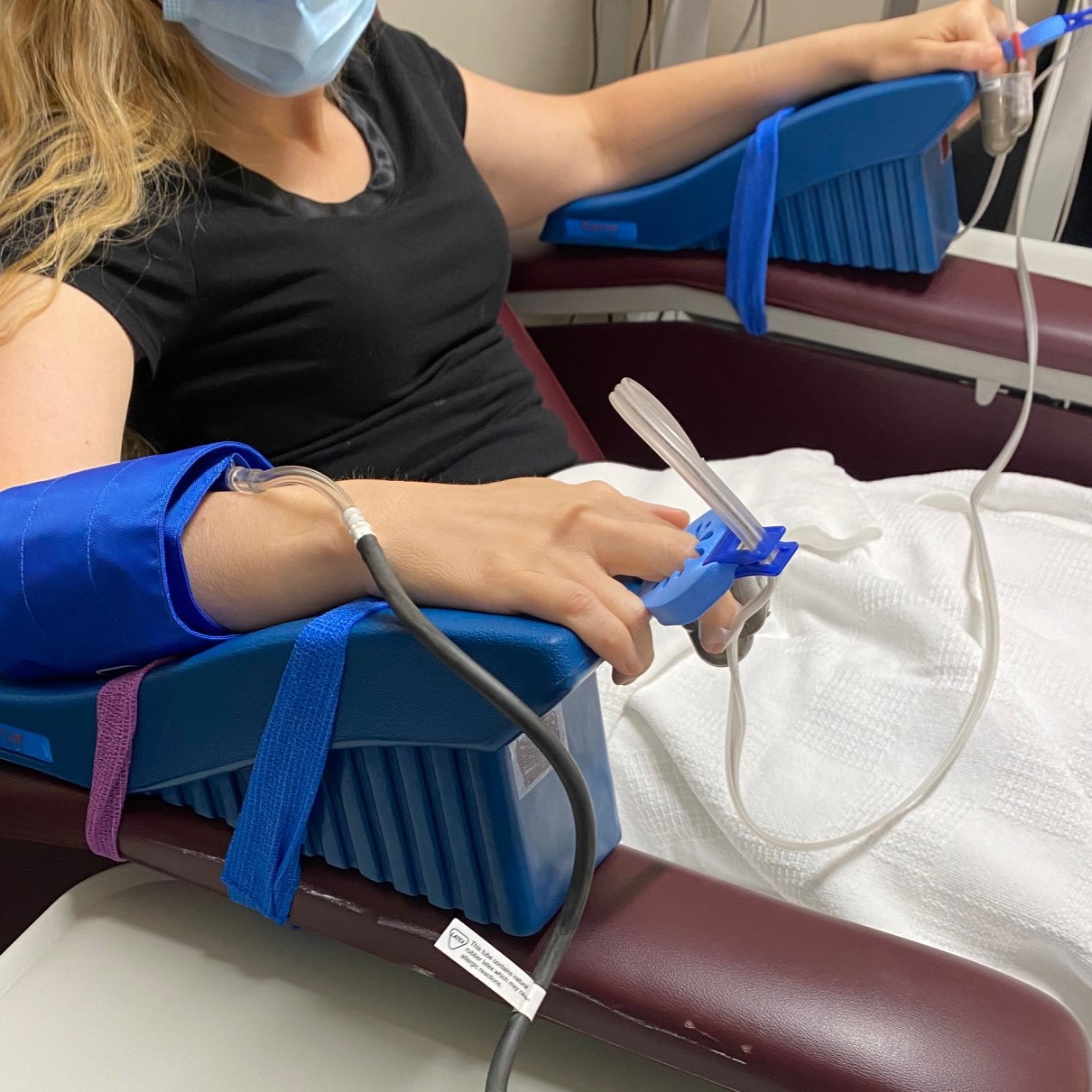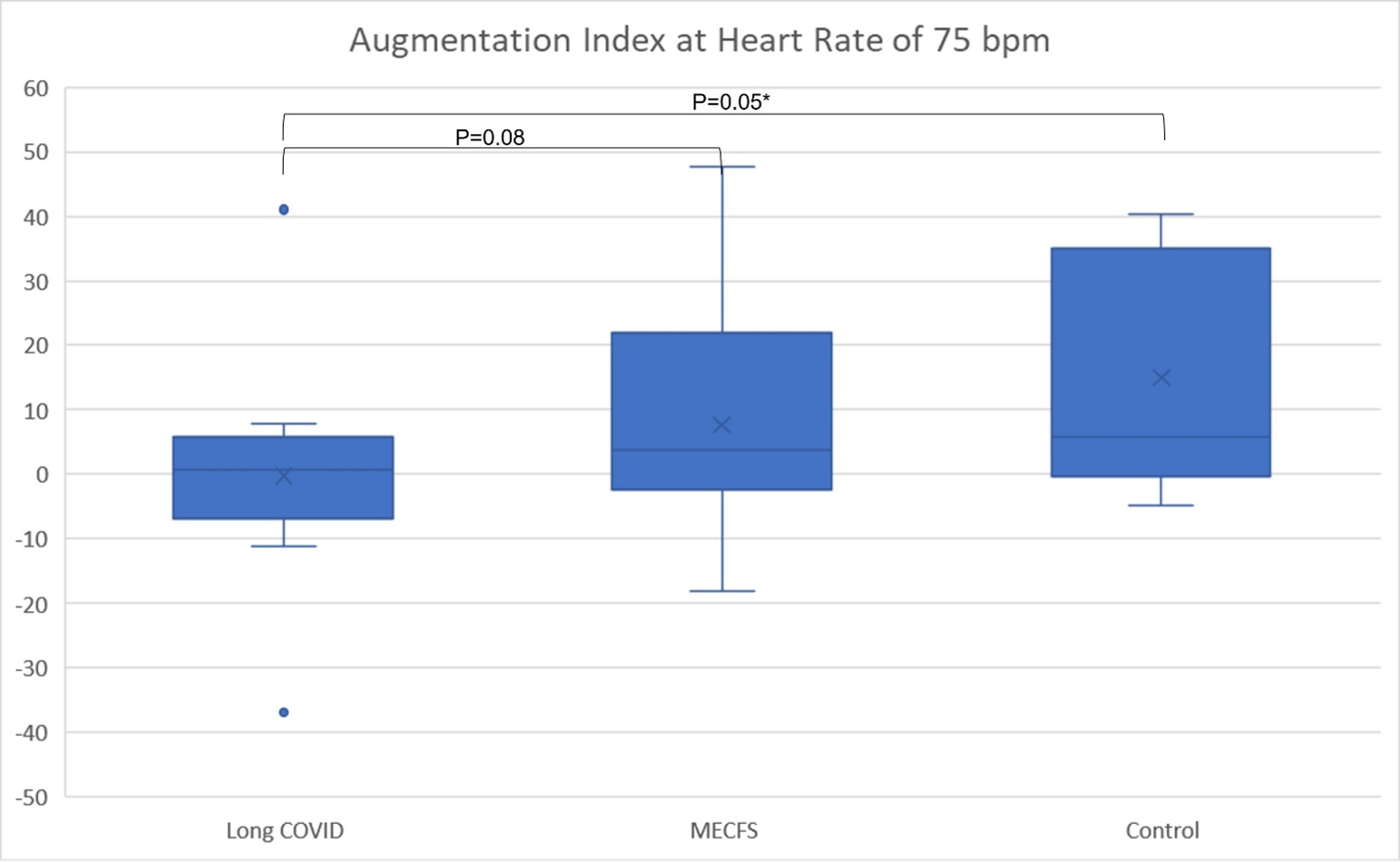In February of this year, we began enrolling for a study to evaluate endothelial function in people with ME/CFS and Long COVID. “Endothelial” refers to the cells that line the inside of blood vessels. Endothelial cells are actively involved in contracting/relaxing the blood vessels, blood clotting, and immune function.
 Our aim is to assess endothelial function using the Endo PAT 2000 device, which measures Peripheral Arterial Tone (PAT) signal changes using non-invasive monitoring at the fingertip. We measure PAT at baseline, then again after reducing blood flow, and again after restoring normal blood flow. This process is called a reactive hyperemia challenge. Specifically, it consists of a brief baseline PAT recording, followed by a 5-minute PAT recording of blood flow during occlusion to one arm using an inflated blood pressure cuff, and 5 minutes of recording after the cuff pressure is released. This data generates a reactive hyperemia index (RHI) which is the post-to-pre occlusion PAT signal ratio in the occluded arm compared to the other arm that is not occluded.
Our aim is to assess endothelial function using the Endo PAT 2000 device, which measures Peripheral Arterial Tone (PAT) signal changes using non-invasive monitoring at the fingertip. We measure PAT at baseline, then again after reducing blood flow, and again after restoring normal blood flow. This process is called a reactive hyperemia challenge. Specifically, it consists of a brief baseline PAT recording, followed by a 5-minute PAT recording of blood flow during occlusion to one arm using an inflated blood pressure cuff, and 5 minutes of recording after the cuff pressure is released. This data generates a reactive hyperemia index (RHI) which is the post-to-pre occlusion PAT signal ratio in the occluded arm compared to the other arm that is not occluded.
The RHI is a measure of endothelial function. Normal endothelial function RHI scores are >0.51 and abnormal scores are <0.51 (the red dotted line in the figure below shows the 0.51 demarcation). What is abnormal and normal was determined by the company that makes the Endo PAT 2000 by analyzing 10,000 data points collected from different study cohorts worldwide. The Endo PAT 2000 also measures arterial stiffness from the PAT signal. Arterial stiffness is not necessarily correlated to endothelial function but may provide information as well.
We are at the halfway point of enrollment for this study and wanted to share the interim analysis. Figure 1 shows the RHI results for 24 ME/CFS patients, 14 Long COVID patients, and 5 controls. The average RHI scores for Long COVID patients was 0.53, 0.63 for ME/CFS patients, and 0.59 for controls. Remember that an RHI of <0.51 is abnormal. While the average RHI is normal (>0.51) for each of the 3 groups is normal, 8/14 (57%) of the Long COVID patients had an abnormal RHI score, 9/24 (38%) of ME/CFS patients had an abnormal RHI score, and 2/5 (40%) of controls had an abnormal RHI score. Enrolling more patients will give a stronger signal to let us know whether endothelial dysfunction is a significant finding in Long COVID and ME/CFS patients.
Augmentation index (AI) measures arterial stiffness and is measured at a heart rate of 75 beats per minute (bpm). Lower AI values (including negative results) reflect more arterial elasticity. AI usually increases with age and is higher in women. The interim results for arterial stiffness are shown in Figure 2. The average AI for Long COVID patients was -0.24, 7.6 for ME/CFS patients, and 15 for controls. Long COVID patients had significantly lower arterial stiffness and thus higher arterial elasticity than controls (p=0.05) and ME/CFS (p=0.08).
Figure 2
We are continuing to enroll for this important study and we need at least 5-10 more ME/CFS patients, 15-20 more Long COVID patients, and 10-15 more controls. The study requires a 2-hour in-person visit and continues for seven days with brief tests and surveys that are done from the comfort of your home. The in-person visit will start with you giving informed consent, answering questionnaires, and having a blood draw. Then we will take about 15 minutes to measure
Please consider participating in this research. If you are interested, please contact us by:
Emailing: [email protected] or call
(801) 532-8311
Bateman Horne Center relies on charitable contributions to sustain our research, clinic, and education programs. Support our work by donating today!



 Lucinda Bateman, MD, is a renowned clinician, researcher, and educator. Her Johns Hopkins University Medical School training instilled an approach to care that she has employed throughout her career - the patient comes first and the unknown or unexplained does not equate to a lack of proper and compassionate care. Since starting her own practice in 2000, she has served on six boards or committees, been the principal investigator for 45 studies, authored/coauthored 40 journal articles, served as adjunct instructor and adjunct assistant professor in the University of Utah Departments of Preventative Medicine, Internal Medicine, and Anesthesiology, and lectured around the world.
Lucinda Bateman, MD, is a renowned clinician, researcher, and educator. Her Johns Hopkins University Medical School training instilled an approach to care that she has employed throughout her career - the patient comes first and the unknown or unexplained does not equate to a lack of proper and compassionate care. Since starting her own practice in 2000, she has served on six boards or committees, been the principal investigator for 45 studies, authored/coauthored 40 journal articles, served as adjunct instructor and adjunct assistant professor in the University of Utah Departments of Preventative Medicine, Internal Medicine, and Anesthesiology, and lectured around the world.